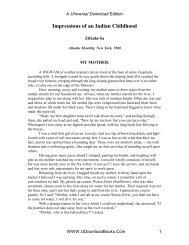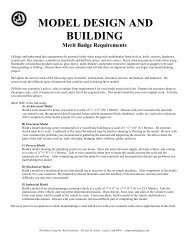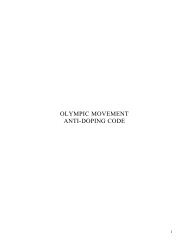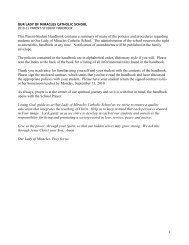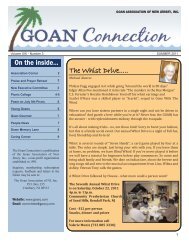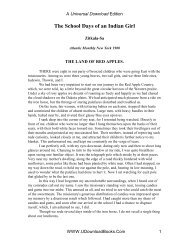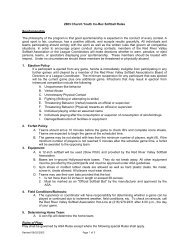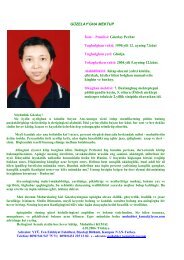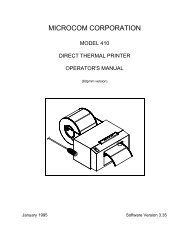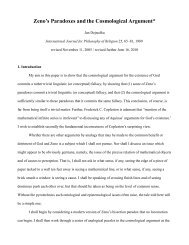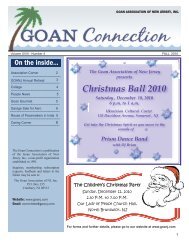Dummett's Backward Road to Frege and to Intuitionism - Tripod
Dummett's Backward Road to Frege and to Intuitionism - Tripod
Dummett's Backward Road to Frege and to Intuitionism - Tripod
Create successful ePaper yourself
Turn your PDF publications into a flip-book with our unique Google optimized e-Paper software.
the horns of the dilemma (my 2003: xxvi, 47, 61, 73; 1999: 18).<br />
Dummett distinguishes objects of reference from objects of apprehension <strong>and</strong> says that senses<br />
can be objects of apprehension even if they cannot be objects of reference ( Dummett 1981a: 131–33). I<br />
think we cannot rescue the thesis that senses are objects in this way. Senses cannot be objects of<br />
reference or objects of apprehension without ceasing <strong>to</strong> function as senses, i.e., without ceasing <strong>to</strong><br />
function so as <strong>to</strong> present other entities. Also, where objects are public <strong>and</strong> communicable, can there be<br />
any possible object of apprehension which is not also a possible object of reference, or vice versa? To<br />
apprehend an object is <strong>to</strong> single it out in thought; <strong>to</strong> refer <strong>to</strong> it is <strong>to</strong> single it out in language. The<br />
singling out of it remains exactly the same; only the venue changes from thought <strong>to</strong> language.<br />
Phenomenologists hold that an intentional act cannot be identified independently of the object<br />
of the act. If we equate such an act <strong>to</strong> a <strong>Frege</strong>an sense, <strong>and</strong> such an object <strong>to</strong> a <strong>Frege</strong>an object, this<br />
might seem <strong>to</strong> support the backward road. But a <strong>Frege</strong>an sense is not an act, <strong>and</strong> a <strong>Frege</strong>an object is not<br />
a phenomenal object, but an object in itself. For <strong>Frege</strong>, an act of judgment, query, or comm<strong>and</strong> cannot<br />
be identified independently of its force <strong>and</strong> its sense, <strong>and</strong> there may be no object <strong>to</strong> single out.<br />
There are two orders of determination in <strong>Frege</strong>: the order of cognition, <strong>and</strong> the order of being.<br />
The order of cognition or cognitive dependence is the order of what must be singled out first, in<br />
order for something else <strong>to</strong> be singled out. Namely, senses must be grasped first, <strong>and</strong> references can be<br />
grasped only via senses.<br />
The order of being or on<strong>to</strong>logical dependence is the order of what must be capable of existing<br />
first, in order for something else <strong>to</strong> have an on<strong>to</strong>logical function or reason for being. Namely,<br />
cus<strong>to</strong>mary references are the primary beings <strong>and</strong> comprise what we ordinarily consider the world, <strong>and</strong><br />
senses function merely as their modes of presentation. A cus<strong>to</strong>mary reference has indefinitely many<br />
modes of presentation. This is why the reference cannot backwardly determine any single mode as<br />
“the” mode of its presentation.<br />
32




